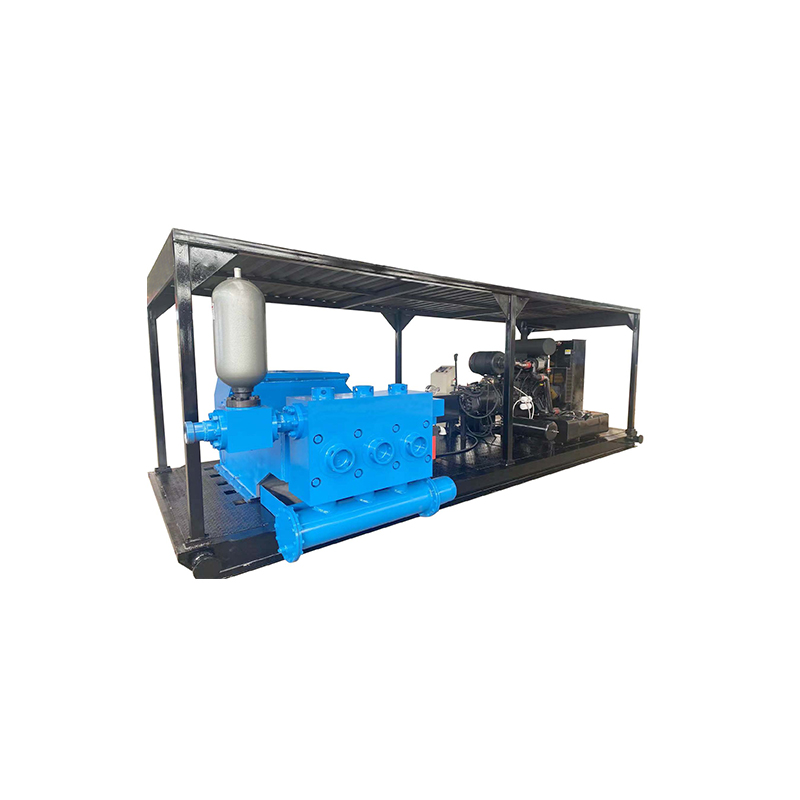The Ultimate Guide to Triplex Mud Pumps
Triplex mud pumps, often hailed as the workhorses of the oil and gas drilling industry, play a pivotal role in ensuring the success of drilling operations. These remarkable machines are responsible for pumping drilling fluid, or "mud," into the wellbore to lubricate and cool the drill bit, control pressure, and carry cuttings to the surface. In this comprehensive guide, we delve deep into the world of triplex mud pumps, exploring their functions, components, maintenance, and the crucial role they play in drilling success.

Triplex mud pumps are a type of positive displacement pump that use three reciprocating pistons to generate hydraulic pressure. They are an integral part of the drilling process, ensuring a steady flow of drilling mud to facilitate drilling, reduce friction, and maintain wellbore stability.
Key Components of Triplex Mud Pumps
Pistons: Triplex mud pumps are named for their three pistons. These pistons create the necessary pressure to move drilling fluid downhole. They operate in a synchronized manner, providing a continuous mud flow.
Cylinders: The pistons move within cylinders, creating the pumping action. These cylinders are constructed to withstand high pressures and are typically made of durable materials like forged steel.
Valves: Mud pumps have suction and discharge valves that control the flow of drilling fluid. These valves open and close in coordination with piston movement, ensuring a consistent flow of mud.
Power End: The power end houses the pistons, connecting rods, and crossheads. It is responsible for converting the energy from the prime mover (usually an engine or motor) into reciprocating motion.
Fluid End: This component includes the fluid chamber where mud is pressurized. It contains the cylinders and valves and is essential for maintaining a sealed system.
The Role of Triplex Mud Pumps in Drilling
Triplex mud pumps are a critical part of any drilling operation. They serve several vital functions:
Maintaining Pressure: These pumps ensure that the drilling fluid maintains the necessary pressure to prevent blowouts and keep the wellbore stable.
Cooling and Lubrication: The mud pumped by triplex mud pumps not only carries away cuttings but also cools and lubricates the drill bit, preventing overheating and reducing wear and tear.
Transporting Cuttings: Drilling mud carries rock cuttings and debris from the wellbore to the surface, helping to keep the hole clear and aiding in evaluating the formation being drilled.
Maintenance and Care
Proper maintenance of triplex mud pumps is essential to ensure their longevity and optimal performance. Regular tasks include:
Changing Fluids: Routine fluid changes are necessary to prevent contamination and maintain the integrity of the drilling fluid.
Inspecting Valves: Regularly inspect and replace valves as needed to prevent leaks and maintain a consistent flow.
Lubrication: Ensure all moving parts are adequately lubricated to reduce friction and wear.
Monitoring Pressure: Keep a close eye on pressure levels to prevent overloading the pump, which can lead to breakdowns.
Cleaning: Clean all components to remove debris and contaminants that can impede performance.
Conclusion
Triplex mud pumps are the unsung heroes of the drilling industry, quietly ensuring the success of drilling operations worldwide. Understanding their components, functions, and maintenance requirements is crucial for anyone involved in drilling. By mastering the art of triplex mud pump, you can significantly contribute to the efficiency and safety of drilling operations.
评论
发表评论